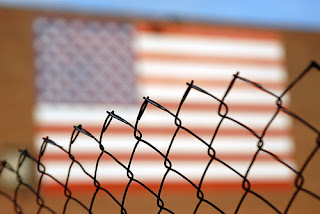The American Dream is a national ethos of the United States in which freedom includes a promise of the possibility of prosperity and success.
The American Dream has been credited with helping to build a cohesive American experience, but has also been blamed for inflated expectations.
Since the 1920s, numerous authors, such as Sinclair Lewis in his 1922 novel Babbitt, and F. Scott Fitzgerald, in his 1925 classic, The Great Gatsby, satirized or ridiculed materialism in the chase for the American dream. Within 'The Great Gatsby', Gatsby - the character representative of the American dream was killed, symbolizing the pessimistic belief that the American dream is dead. In 1949 Arthur Miller wrote the play "Death of a Salesman" in which the American Dream is a fruitless pursuit.
Hunter S. Thompson in 1971 depicted in Fear and Loathing in Las Vegas: A Savage Journey Into the Heart of the American Dream a dark view that appealed especially to drug users who emphatically were not pursuing a dream of economic achievement. The preface quotes Samuel Johnson: He who makes a beast of himself gets rid of the pain of being a man. The quotation alludes to the protagonists' profuse drug use in escaping the coarse realities of American life; passages detail the failed counterculture, people who thought drug use was the answer to society's problems. The contradiction of solace in excess is thematically similar to The Great Gatsby, a favourite novel of Thompson's.
H. S. Thompson posits that his drug use (unlike Dr. Leary's mind-expansion experimentation drug use), is intended to render him a mess; that he is the poster boy of a generation of "permanent cripples, failed seekers...;" their erratic behaviour depicts the restless failure his generation feels.
The "American Dream" is the novel's prevalent thematic motif, while searching for the literary and metaphoric American Dream, and for an eponymous real place in Las Vegas Las Vegas
Fear and Loathing in Las Vegas - Gonzo at the Bar of Bazooko Circus
Many counter-culture films of the 1960s and 1970s ridiculed the traditional quest for the American Dream. For example Easy Rider (1969), written by Peter Fonda, Dennis Hopper, and Terry Southern, shows the characters making a pilgrimage in search of "the true America" in terms of the hippie movement, drug use, and communal lifestyles.
The iconographic, 'buddy' film, actually minimal in terms of its artistic merit and plot, is both memorialized as an image of the popular and historical culture of the time and a story of a contemporary but apocalyptic journey by two self-righteous, drug-fueled, anti-hero (or outlaw) bikers eastward through the American Southwest. Their costumes combine traditional patriotic symbols with emblems of loneliness, criminality and alienation - the American flag, cowboy decorations, long-hair, and drugs. Their trip to Mardi Gras in New Orleans takes them through limitless, untouched landscapes (icons such as Monument Valley), various towns, a hippie commune, and a graveyard (with hookers), but also through areas where local residents are increasingly narrow-minded and hateful of their long-haired freedom and use of drugs.
The film's title refers to their rootlessness and ride to make "easy" money; it is also slang for a pimp who makes his livelihood off the earnings of a prostitute. However, the film's original title was The Loners.

[The names of the two main characters, Wyatt and Billy, suggest the two memorable Western outlaws Wyatt Earp and Billy the Kid - or 'Wild Bill' Hickcock. Rather than traveling westward on horses as the frontiersmen did, the two modern-day cowboys travel eastward from Los Angeles - the end of the traditional frontier - on decorated Harley-Davidson choppers on an epic journey into the unknown for the 'American dream'.]
Easy Rider - 1969 - Original Trailer
That "gross, physical salute to the fantastic possibilities of life in this country" was The Summer of Love 1967.


Hunter Thompson's "wave speech" is an important passage that captures the hippie zeitgeist and its end.
On this video Johnny Depp, who knew Hunter personally and starred in Terry Gilliam's film adaptation of Fear and loathing, is reading this abstract
EPILOGUE
Journey we more into the Nightmare
Cling to life our passion'd flower...
Cling to life our passion'd flower...
Do you know we are ruled by T.V...
Did you know freedom exists
in a school book...
We're trying for something
That's already found us...
'An American Prayer'
James Douglas Morrison










Немає коментарів:
Дописати коментар